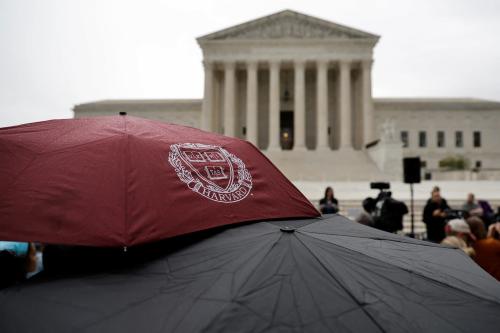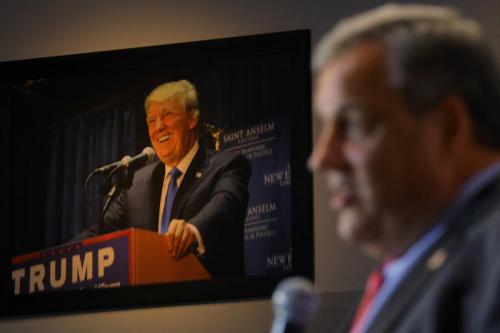Dorothy Robyn is a Senior Fellow with Boston University’s Institute for Global Sustainability. She oversaw DOD military bases during the Obama Administration.
Last week, House Speaker Kevin McCarthy announced plans to convene a bipartisan commission to tackle federal spending more broadly once the debt-ceiling fight settles down. McCarthy likened it to the commission used to identify unneeded military bases as part of the Department of Defense’s Base Realignment and Closure, or BRAC, process. The Speaker’s proposal to convene a BRAC commission makes sense but not for the reason he suggests.
What is BRAC?
The BRAC process was designed to give Members of Congress the political cover needed to support a desired action (multiple base closures) that would impose severe economic pain on a subset of communities. Congress authorized the use of the current process for the 1988 round of base closures, and it authorized four additional closure rounds in 1991, 1993, 1995 and 2005.
Two features of the BRAC process, which former Rep. Dick Armey of Texas is credited with devising, are key to its success. One is the independent commission, which reviews a set of recommendations that DOD puts forward following an elaborate internal review. The Commission can take individual bases off of DOD’s list. It can also add bases to the list, although that requires extra procedural steps and has been far less common.
The other key feature of BRAC is the requirement that the White House and Congress accept or reject the Commission’s recommendations in their entirety. By prohibiting the President and Members from taking individual bases off of the closure list, the BRAC process makes the Commission’s recommendations conditionally binding. The prohibition on cherry-picking also gives Members plausible deniability as to the outcome of the process.
BRAC is the solution to what economists call a “public good” problem. A round of base closures, like clean air or national security, is something that benefits everyone and that no one can be excluded from enjoying. The challenge with public goods is to pay for them. The BRAC process historically provided a politically palatable way to pay for this particular public good.
Why BRAC Isn’t Suited to Deficit Reduction
While an independent commission could play a key role in federal deficit reduction, BRAC is not the right model, and Congress will never agree to the other features of the BRAC process that make it so effective.
The BRAC process works (or worked in the past) because two conditions are met when it comes to base closures. One, all of the players agree that an action (multiple closures) that will impose losses on the few is good for the many. Two, individual closure decisions are unrelated to any cross-cutting political or policy divisions in Congress, with local politics representing the only impediment.
By contrast, when it comes to the federal budget, there is no agreement among the players that a reduction in spending is desirable, and local politics is only one impediment to individual spending cuts, which often threaten the missions of federal agencies and the interests of cross-cutting groups. For this reason, just as with other contentious issues such as climate policy or immigration reform, it is exceedingly unlikely that Congress would authorize a BRAC-like process to address federal spending in the first place.
That said, there may be value in convening a bipartisan panel of outside experts to help identify potential budget cuts as well as tax increases that Congress and the Executive Branch could consider. This is different from the “appellate” role served by the BRAC commission, which reviews and tweaks judgments made by DOD, and the panel’s recommendations would be non-binding. But such a panel may respond to a need for expertise in finding deficit-reduction opportunities.
There is a history of non-BRAC-like commissions having been convened to tackle deficit reduction, and a few of them have produced results. Executive-led efforts such as Vice President Al Gore’s Reinventing Government initiative have also enjoyed considerable success. While the Speaker’s current timing, just before a presidential election, is problematic, early 2025, with the Trump Administration’s tax cuts due to expire in their entirety at the end of 2025, could be an ideal time to convene an independent commission or undertake an executive-led initiative.
Create a BRAC Commission — To Do BRAC
Speaker McCarthy’s proposal is just the latest example of the BRAC process being seen — usually incorrectly — as a model for overcoming entrenched political opposition to policy change. For example, Members have introduced several bills authorizing a BRAC-style process to move valuable radio spectrum from federal control to commercial use.
The irony is that Congress continues to treat BRAC itself as a four-letter word. DOD avoids $7 billion in spending every year because of past base closures, making BRAC perhaps the most significant efficiency initiative the Pentagon has ever carried out. And in 2017, DOD determined that it still had 20 percent excess infrastructure. Despite that, beginning in 2012, Congress has repeatedly spurned DOD requests for new BRAC authority because of the opposition from lawmakers who don’t want to see bases closed in their states and districts.
Speaker McCarthy is on the right path in calling for an independent commission to address federal spending. But while BRAC is a poor model for the process of deficit reduction, reauthorization of BRAC could help Congress achieve the substance of its budget reduction target. If the Speaker’s commission is effective, its many recommendations will include the resumption of BRAC that DOD has long sought.







Commentary
Speaker McCarthy: We need a BRAC commission, but not to tackle federal spending
June 6, 2023